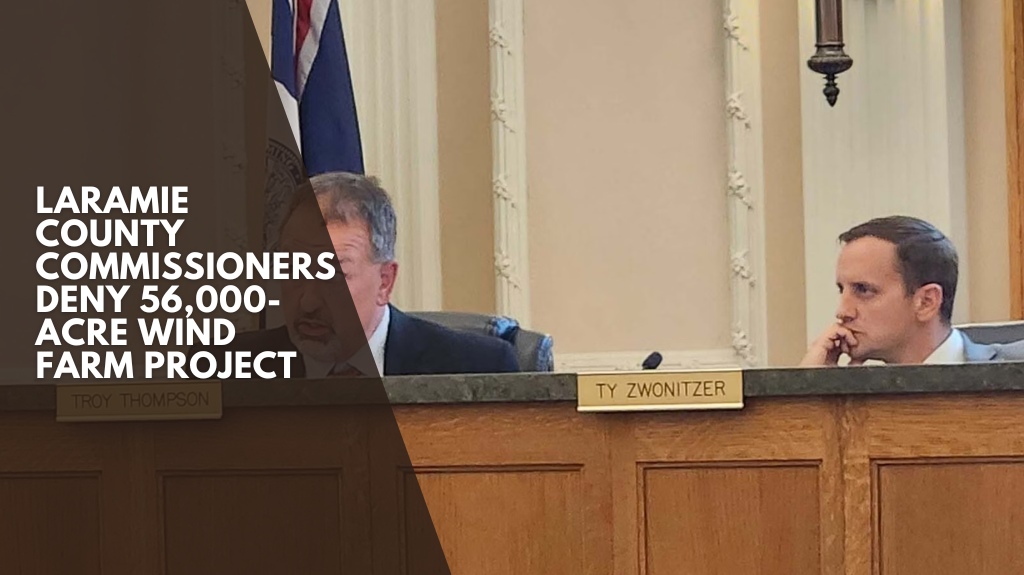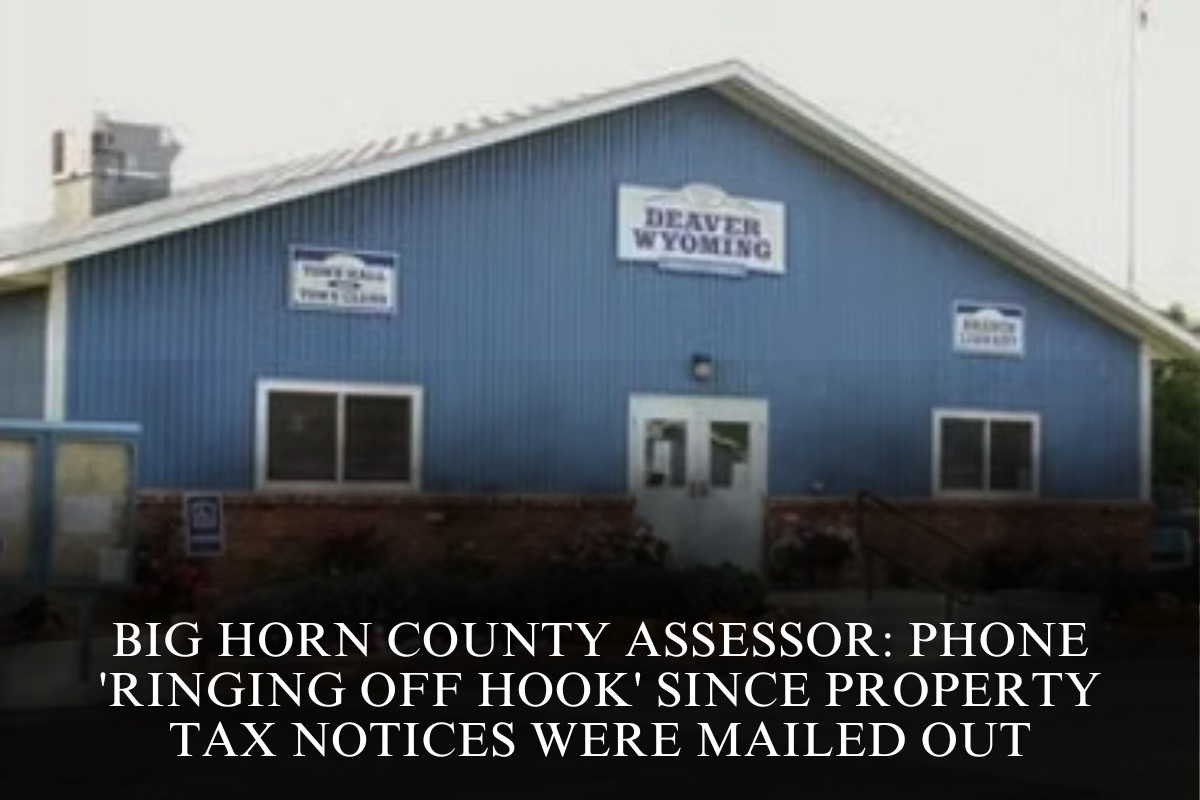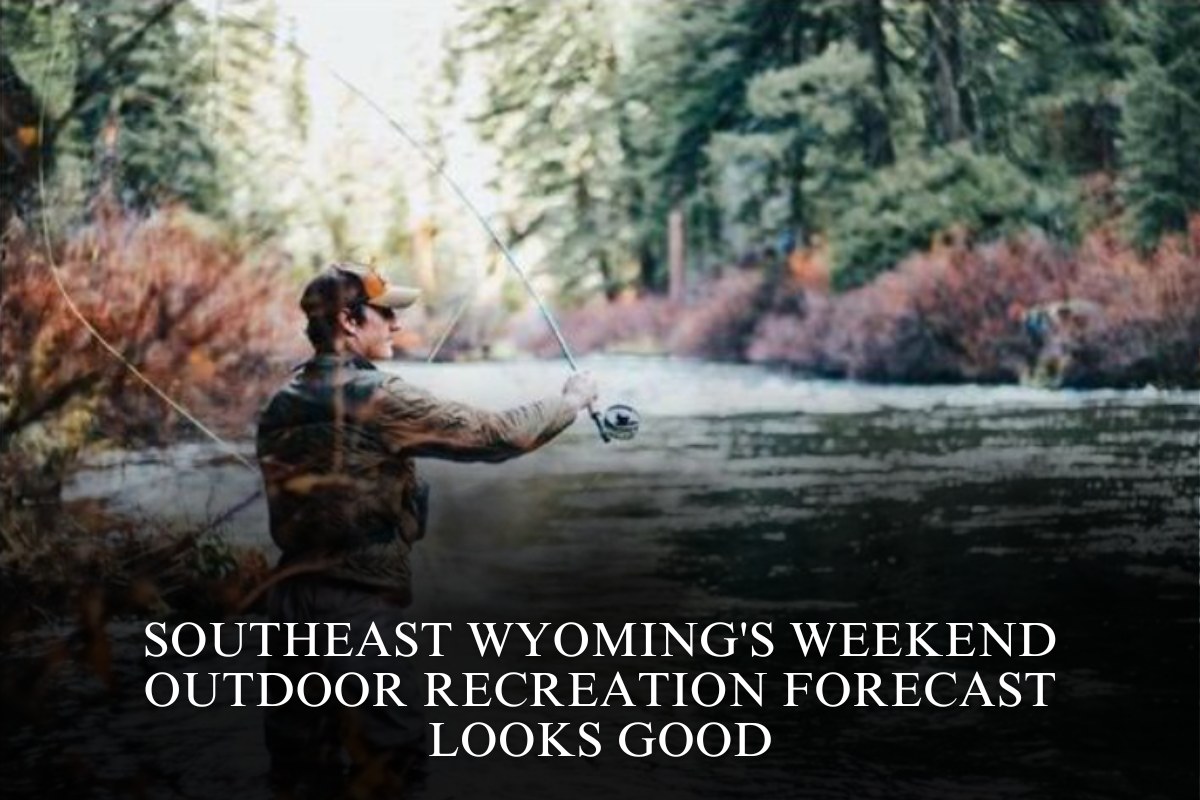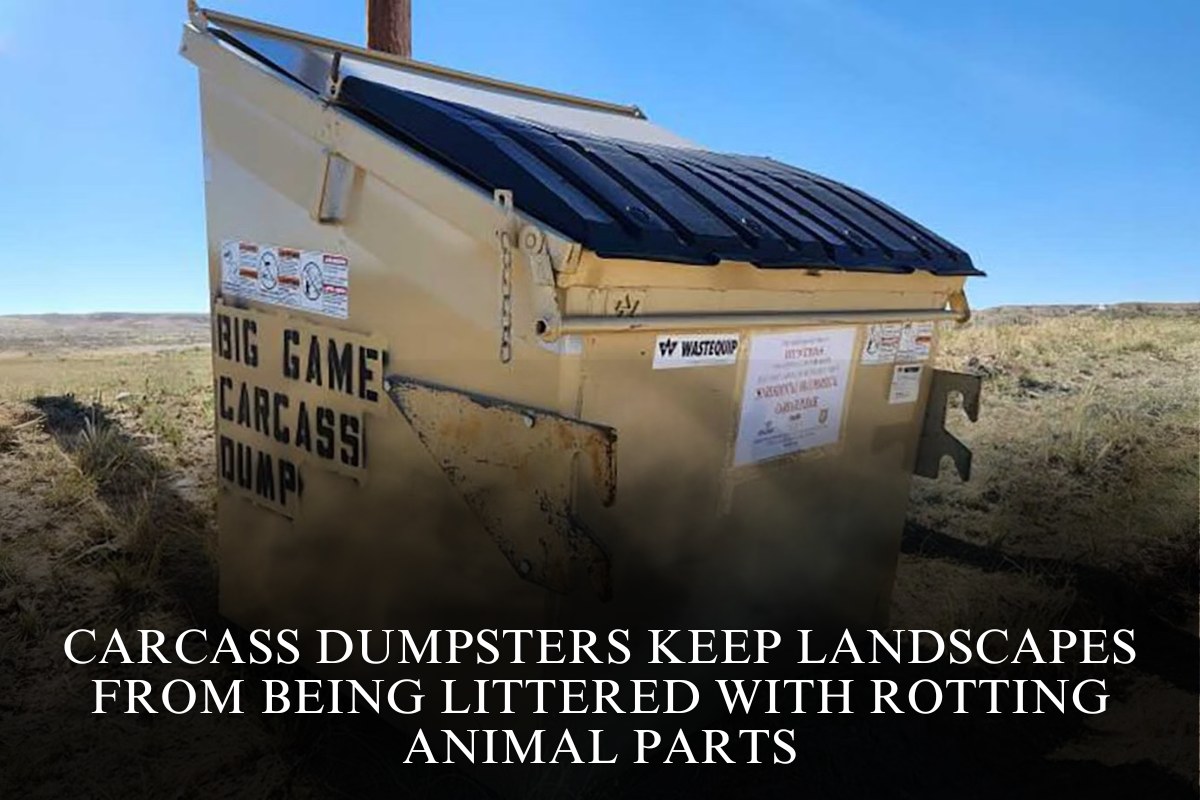CHEYENNE — The Laramie County Board of Commissioners denied a controversial wind energy development proposal three times the size of Cheyenne on Tuesday after hearing from dozens of county residents who opposed the project.
The Laramie Range Wind Project, backed by Spanish energy giant Repsol, drew a long line of protesters who claimed the up to 170 wind turbines would disrupt local wildlife and become an eyesore.
After a more than four-hour hearing, the commission rejected the project 3-1.
Commissioner Linda Heath said she was moved by the beautiful landscape in the Horse Creek area of the proposed wind farm and is passionate about preserving Wyoming’s untouched landscapes.
“Once we lose it, we can never get it back,” she told me.
Acting Chairman Troy Thompson was the only yes vote, siding with the project’s landowners and arguing that it was unfair to hold Repsol to such high standards only to let the company down.
He added that too many Wyomingites are opposed to the project simply because of its proximity, and that it is unfair to reject the proposal after the company has followed all of the county’s rules.
“I’m disappointed in this commission,” he told me.
Repsol Responds
With commission Chairman Gunnar Malm absent, four county commissioners sat through the public hearing.
Repsol project manager Charlie Banke, who also spoke at last week’s planning commission hearing, began by showing the commissioners copies of a Repsol slideshow.
He again asked the commissioners to approve the project and praised the company’s responsible approach to other energy developments across the United States.
Banke stated that the project would have minimal impact on surrounding land during construction, allowing nearby landowners to continue using their property as they see fit.
According to Banke, Repsol has worked with local landowners and federal authorities to ensure that construction begins in 2027 as planned.
He also touted Repsol’s potential $1.1 billion investment in the community, as well as a $190 million tax cut for locals. He also predicted that the county could receive an additional $32 million in sales tax revenue and a surge in local employment as a result of construction jobs at the turbine field.
Banke addressed community concerns raised at last week’s planning commission meeting, which he described as primarily about visual, traffic, and environmental impacts. He stated that Repsol had investigated each of these concerns to ensure a minimal impact on locals.
“I want to emphasize safety is paramount in all of our planning efforts,” said the captain.
Allison Poe, Repsol’s director of environmental affairs and permitting, also spoke, assuring commissioners that the company is continuing to consider the impact on local wildlife, such as sage grouse.
Poe cited several Wyoming Game and Fish Department wildlife guidelines, stating that Repsol is working with them to ensure project approval.
To avoid accidental collisions, she suggested that turbine speeds be reduced when bats are most active.
Repsol is also using camera technology to detect eagles flying near its turbines, according to Poe. She explained that if a turbine detects an eagle nearby, it will shut down until the eagle has left the area.
Repsol relocated nine proposed turbines away from mule deer and antelope habitats to avoid disrupting their migration patterns, according to Poe.
“Since 2019 we have been performing significant due diligence and studies,” according to her. “The project avoids and minimizes adverse impacts on the environment.”
“We are pleased with the robust consultation that has taken place to date and ensure you it has been implemented into the citing plan before you,” according to her. “We have gone to great lengths — more than reasonable efforts — to avoid adverse impacts.”
Repsol representatives acknowledged last week’s decision to postpone the planning commission’s symbolic vote on the project to give the state Industrial Siting Council more time to consider it.
They urged the commissioners to vote as scheduled, arguing that any further delay would be “unnecessary.”
Commissioner Ty Zwonitzer then pressed Banke on the consequences of Repsol’s failure to meet its commitments to Laramie County.
Banke argued that Repsol is “financially obligated” to keep its promises, and that the company is already considering adding aircraft detection lights to its turbines.
Thompson then agreed that the committee would make a decision on Tuesday, but would request a legal analysis of Repsol’s promises.
Public Comments
Guy Don Carlos, a landowner in the Horse Creek area, began by calling on the commissioners to remove a slideshow slide showing images of turbines to maintain “some semblance of impartiality” by the commission. Thompson agreed to do so and the slide was removed.
Don Carlos also stated that the Laramie County Fire Department is not adequately prepared to fight a potential turbine fire. He wondered where the water would come from to put out such a fire or to fuel concrete construction at the turbines.
“This thing is just about due west of my residence,” he told me. “Our houses are going to burn down. Every resident of this county should be concerned about water.
Don Carlos also questioned how eagle spotting technology could stop a 250-foot blade spinning at approximately 200 mph. Stopping the blade, he contended, would take too long to avoid hitting an eagle.
Those in attendance applauded at the conclusion of his remarks.
Jackson Stewart, True Ranches’ in-house lawyer, stated that he represented several ranchers who would see turbines installed on their land. He argued that the turbines’ supplemental income would assist ranchers in navigating agricultural price fluctuations and unpredictable weather.
Stewart suggested that Repsol will listen to Wyomingites throughout the project’s life cycle.
“True Ranches would not support a project that threatens the integrity of the lands we depend on,” he informed me.
Wendy Volk, a Cheyenne Realtor, presented the commissioners with maps she claimed better represented Repsol’s proposed project area. She claimed that the company had not accurately represented the location of its turbines in relation to her family’s ranch.
“It’s impossible,” she said, displaying an image of Repsol’s map. “I think if you have $1.1 billion to invest in this community, you could give a map that would show landowners how their ranches will be affected.”
Volk also claimed that Repsol appears to be deliberately withholding specific numbers about the project’s economic and environmental impacts. She urged the company to “show us the numbers.”
“I keep thinking, ‘Why didn’t we hear about this?'” she fumed. “I don’t think the company has done a good enough job to reach out to us, the citizens to establish a proposed relationship.”
Postponement Push
Several others requested commissioners postpone the vote to allow time to learn more from Repsol and the Industrial Siting Council, despite Thompson having already said they would deliver a decision.
State Rep. Gary Brown, R-Cheyenne, said his constituents have asked him to speak out against the development. He argued that government subsidies for Repsol were unfair “corporate welfare.”
“I believe highly in personal property rights,” according to him. “But when your personal property, your right, affects somebody else’s property adversely, it’s alright for those people to stand up and say, ‘No, we don’t want this.'”
The representative also urged the commissioners to postpone their vote. Thompson noted Brown’s influence with the Industrial Siting Council and asked him to approach the issue through the Legislature.
Brown later returned to the podium to accuse Repsol of not having the necessary wildlife permits. Thompson responded, stating that those issues would be handled by a different committee.
State Sen. Lynn Hutchings, R-Cheyenne, said the development was in her district and asked the commissioners to postpone their vote, pointing out that private property rights do not apply to Wyoming’s skies.
“You’re affecting hundreds of families’ viewsheds and well-beings,” she pointed out.
Commission Decision
Following all public comments, the commissioners held a discussion and agreed to make some changes to the plan. These included road use agreements, aircraft lighting for wind turbines, eagle detection, a 2,000-gallon fire truck for the county, and a requirement that all water use go through the state engineer’s office.
The vote failed due to a 2-2 tie. The commissioners then took the final vote and denied the Laramie Wind Range project.
Commissioners Zwonitzer and Don Hollingshead both agreed that the risks outweighed the potential benefits. Hollingshead said hearing the debate reminded him of the Dr. Seuss book The Lorax, adding that “once it’s gone, it’s gone.”












